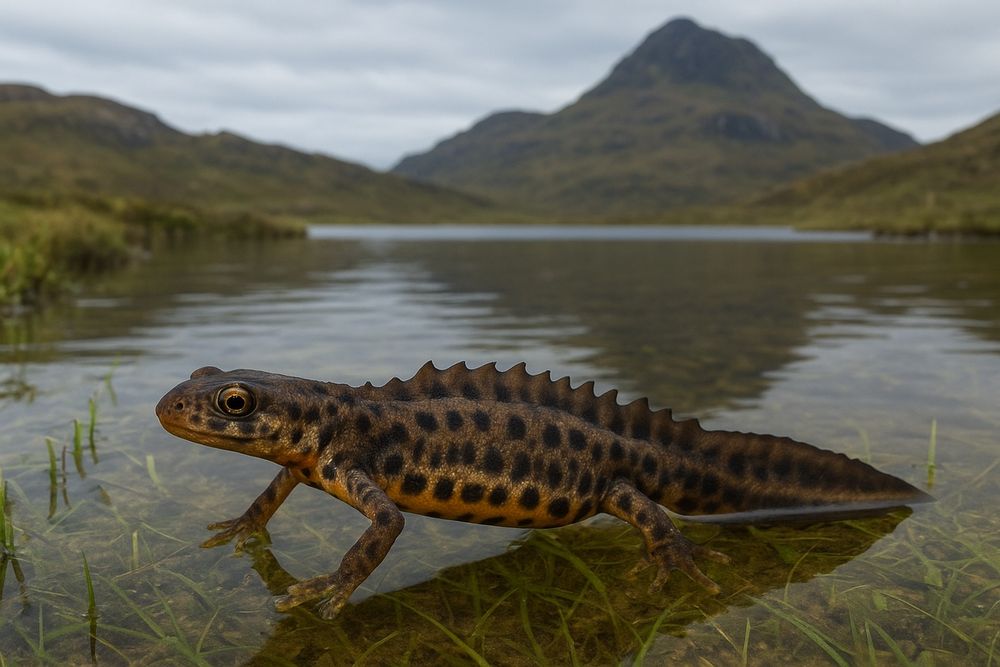
The issue with Ai in a nutshell: AI is the homogenous experience of human "expertise" when what we want in grants is great ideas, not iterative ones.
www.experimental-history.com/p/science-is...
@hansonmark.bsky.social
New PI interested in #immune #evolution, host #pathogen interactions, and #ScientificPublishing @ University of Exeter, UK. He/him. #immunity #infection #antimicrobialpeptides #microbiome #Drosophila #AcademicSky #AcademicChatter #OpenScience 🇨🇦

The issue with Ai in a nutshell: AI is the homogenous experience of human "expertise" when what we want in grants is great ideas, not iterative ones.
www.experimental-history.com/p/science-is...
At the end of the day, I think we need to spend a full human reviewer's time to check that the process has been fair. Let's just acknowledge AI and LLMs are too immature for this, no matter what their parent companies are pushing.
Coding? Great. Novel thinking? Nah.

"Why do we put hurdles in the way of the people that are actually going to drive our economy? It makes zero sense."
Prof Sir Paul Nurse, Nobel prize winning scientist, says the UK's scientific future is being put at risk
www.bbc.co.uk/news/article...
Also great played in the grassland #Wingspan
05.12.2025 06:33 — 👍 0 🔁 0 💬 0 📌 0p.s. by "regress towards the mean" I mean LLMs are trained on our data and interpretations. If we're wrong, they're wrong. All LLMs do is iterate on us at scale – the scientific equivalent of running in place.
True experts discard studies that can't be reconciled with current theory, advancing it.
For instance, in one paper I knew had a flawed interpretation, it accepted the flawed interpretation, and suggested more work buying into the flawed interpretation, but deciding artbitrarily that it needed further sampling to shore up support (for what was still going to be an incorrect premise) 2/2
04.12.2025 19:44 — 👍 1 🔁 0 💬 1 📌 0In my experiences with QED, which is the best I've seen thus far, all it's ever done is riff on what was discussed. It can suggest methods you haven't used. But I've never seen it propose an alternate logic to explain an assertion of the paper that a true expert would think of. 1/2
04.12.2025 19:44 — 👍 2 🔁 0 💬 1 📌 0Horrible idea. AI will regress all grants towards the mean since AI is trained to produce the average output.
Grants require expertise that ignores bad literature and rejects author assertions if false. no AI review I've seen has ever challenged the author's assertions as fundamentally flawed.
Great thread on the Ponzi scheme that is academic publishing. Public funds funnelled into obscene private profits using free labour of (publicly funded) Academics. AI slop contaminating the literature.
02.12.2025 09:00 — 👍 54 🔁 24 💬 0 📌 1
An obviously AI-generated figure with AI slop and fake text all over it, recently published in Scientific Reports.
Since AI slop is again all over Scientific Reports, a thread on the economics of grey-zone publishing.
Why does slop keep getting published? What does it mean for science? How can we stop this?
Background readings:
Understand the strain: tinyurl.com/2b6wxx5r
Stop the drain: tinyurl.com/3jfscscy

New preprint to round off 2025, wrapping up work I did @zslscience.bsky.social and continued @uniexecec.bsky.social
www.biorxiv.org/content/10.1...
We studied skin bacterial community diversity in Palmate Newts from the Isle of Rum.
Pic: dramatic AI newt emerging from (hovering on?) a pond

Funding organisations can fix the science publishing system – which currently puts profit first and science second – according to new research.
@uniexecec.bsky.social
Let me start a journal and get back to you.
03.12.2025 17:04 — 👍 1 🔁 0 💬 0 📌 0I genuinely didn't know it existed as its own AltMetric page 😅
03.12.2025 16:52 — 👍 5 🔁 0 💬 1 📌 0
The Strain on Scientific Publishing, attention badge from Altmetric. 2,124 Bluesky mentions. Published at: https://direct.mit.edu/qss/article/5/4/823/124269/The-strain-on-scientific-publishing
1. The Strain on Scientific Publishing (Hanson et al)
@hansonmark.bsky.social and his colleagues analysed the volume of publications vs volume of researchers, the publish or perish paradigm, Open Access processing charges as a business model, the inability to read all new publications etc.
3/14

Bluesky butterfly #Academicsky #Altmetrics #HigherEd #MedSky #IMSky #Science

Altmetric logo
THREAD
One Year of tracking research communication on @bsky.app
This time last year we officially added the Bluesky social platform to the places where we track research communication and article sharing.
Here are some of the most viral articles that gained traction in the last 12 months.
1/14
You'd have to be a “scientific publisher.” You'd make better profits than Apple and could benefit twice from public funds, from research and from libraries, which would then have to buy back the results in book form. Simply awesome.
03.12.2025 10:41 — 👍 13 🔁 5 💬 0 📌 0Now published as version of record at @elife.bsky.social !
Layers of Immunity: Deconstructing the Drosophila effector response. The tools are now deposited in the VDRC (link ⬇️)
elifesciences.org/articles/107...
shop.vbc.ac.at/vdrc_store/d...
#Drosophila #IDsky #SymbioSky #Infection #Immunology
Just imagining how much better it would be if ALL news stories about vaccine-preventable illnesses were illustrated with pictures of people with the disease, not pictures of needle injections. If you must show something that people will find scary & unpleasant, make it the disease, not the cure.
02.12.2025 04:40 — 👍 8030 🔁 2103 💬 100 📌 33Great thread by one of the folks who brought you “The strain on scientific publishing”
direct.mit.edu/qss/article/...
Really informative and important thread. Hiring and promotion committees need to change the way they work. Maybe ask applicants for their top 2 papers in the last 5yr and actually read them?
01.12.2025 06:15 — 👍 6 🔁 2 💬 0 📌 0
CNRS cancels Web of Science in order to focus on qualitative evaluation and promoting the development of open databases.
www.cnrs.fr/en/update/cn...
Already a great start! What's heartening to hear is that an institution mandate has generated a change in author behaviour. It demonstrates that institutes really do have the power to generate change, and should be willing to flex their muscles.
Let's keep working on the fine details communally.

Interesting investigation into a dodgy Elsevier journal -- with the additional nugget that the CEO of Elsevier's parent company made more than €15 million in total compensation last year.
english.elpais.com/science-tech...
So you could very legitimately say "We will only cover APCs for journals we already paid to cover APCs for. Authors can submit to wherever, but don't expect us to double pay for you to publish your work that you could do for almost-free as Green OA."
01.12.2025 13:55 — 👍 2 🔁 0 💬 2 📌 0There's also stupid bookkeeping that can be leveraged by institutes. Many universities do not pay APCs to hybrid journals because they're covered by Read & Publish agreements. Gold OA-only journals are paid from a separate pot, on top of existing R&P agreements. 3/4
01.12.2025 13:55 — 👍 2 🔁 0 💬 1 📌 0A university or funding agency can say:
"We will only cover article processing charges (APCs) if they are paid to not-for-profit journals" and/or "We will only cover $_____ of the APCs."
Authors aren't banned, but they are strongly motivated to change behaviours. 2/4
Agreed. In any such conversation there is a strong pushback we've faced on the idea that institutes can mandate authors to NOT publish somewhere, or to ONLY publish somewhere. It's a level of policing no one wants.
The solution I've arrived at is to offer incentives, rather than mandates. 1/4

2. colleagues looking for promotion / validation targeted the weakest links in the list massively - which is a totally rational thing to do. Some MDPI journals had made the list, and the result is that Italy has the highest number of MDPI papers per researcher per year among big countries.
Tricky.
Science also resists the push for Gold OA! Thus, they are both non-profit, and their revenue stream remains primarily based on whether people want to read the work they endorse - so they endorse only what they view as "the best."
Science Advances created begrudgingly as an answer to funder mandates